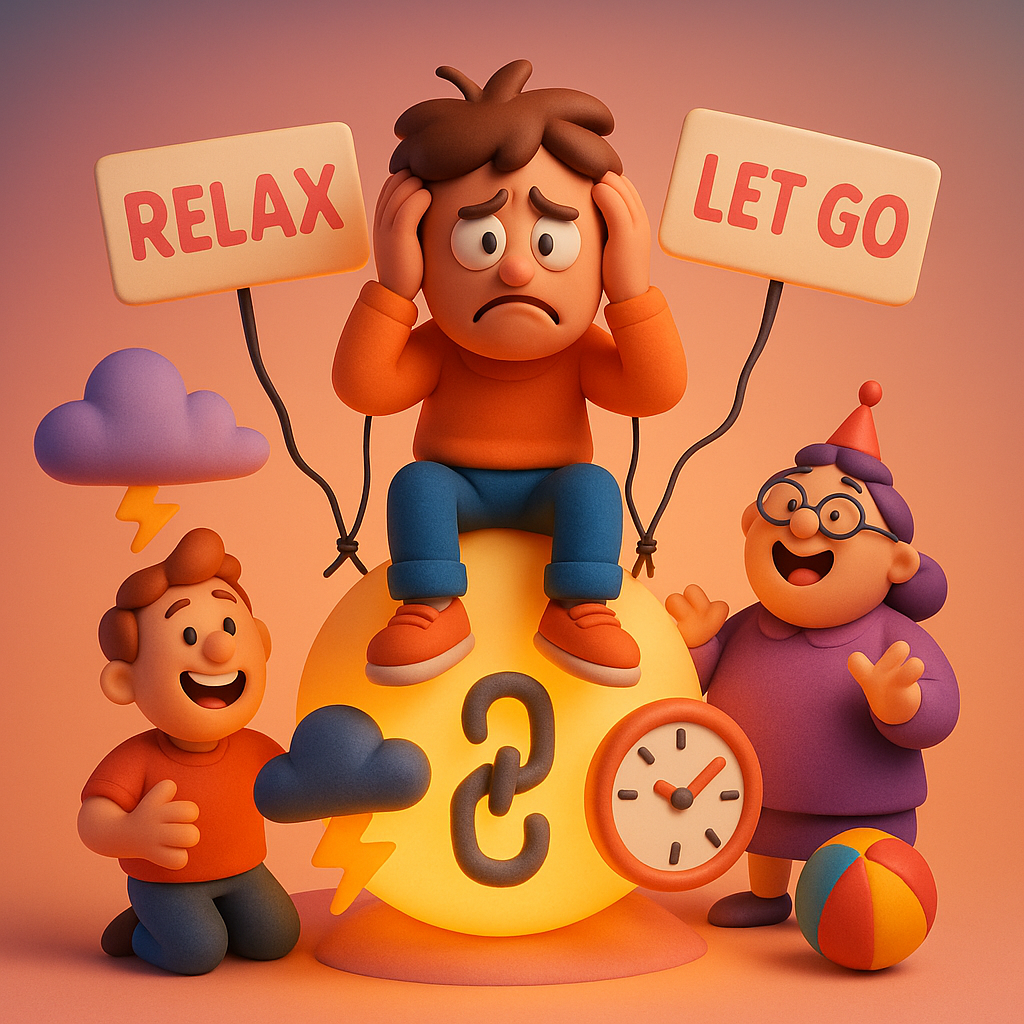Silly
Definition
The term "silly" describes someone or something that is lacking in seriousness, displaying a sense of playfulness, or behaving foolishly.
Parts of Speech
- Adjective
Pronunciation
American English
- IPA Pronunciation: /ˈsɪl.i/
- Respelling: SIL-ee
British English
- IPA Pronunciation: /ˈsɪl.i/
- Respelling: SIL-ee
Etymology
The word "silly" originates from the Old English "sælig," meaning "happy" or "fortunate." Over time, its meaning evolved to "pious" or "innocent" in Middle English, and eventually to "foolish" or "lacking sense" by the 16th century.
Derivatives
- Silliness (noun)
- Sillily (adverb)
- Unsilly (adjective)
- Sillier (comparative adjective)
- Silliest (superlative adjective)
Synonyms
- Foolish
- Ridiculous
- Playful
Antonyms
- Serious
- Sensible
- Logical
Usage
The term "silly" is often used to describe behavior, ideas, or situations that are lighthearted or lack seriousness. For example: "Don’t be silly, it’s just a game," or "Her silly joke made everyone laugh."
Related Terms
- Foolishness: Behavior that shows a lack of sense or judgment.
- Playfulness: A sense of fun or lightheartedness.
- Ridicule: Speech or behavior intended to make fun of someone or something.
Detailed Definitions
Adjective
- Having a lack of seriousness: Refers to behavior or attitudes that are lighthearted or playful.
- Example: "The children’s silly antics kept everyone entertained."
- Exhibiting foolish behavior: Refers to actions or thoughts lacking in sense or reason.
- Example: "It’s silly to worry about things you can’t control."
- Playfully absurd or amusing: Refers to something intended to provoke laughter or fun.
- Example: "She wore a silly hat to the party."
silly



🇨🇳 Mandarin
- 傻 (Foolish)
IPA Pronunciation: /ʂa̠ː/
English Respelling: shǎ - 调皮 (Playfully Mischievous)
-
-
IPA Pronunciation: /tʰjɑʊ̯˥˩pi̯˥˩/
English Respelling: tiáopí
🇮🇳 Hindi
- मूर्ख (Foolish)
IPA Pronunciation: /muːrkʰ/
English Respelling: moorkh
- शरारती (Playfully Mischievous)
IPA Pronunciation: /ʃəraːrtiː/
English Respelling: shararati
🇪🇸 Spanish
- Tonto (Foolish)
IPA Pronunciation: /ˈtonto/
English Respelling: tonto
- Travieso (Playfully Mischievous)
IPA Pronunciation: /tɾaˈβjexo/
English Respelling: travieso
🇫🇷 French
- Bête (Foolish)
IPA Pronunciation: /bɛt/
English Respelling: bête
- Espiègle (Playfully Mischievous)
IPA Pronunciation: /ɛspjɛɡl/
English Respelling: espiègle
🇸🇦 Arabic (Modern Standard Arabic)
- أحمق (Foolish)
IPA Pronunciation: /ʔæħ'mæʔ/
English Respelling: ahmaq
- مشاكس (Playfully Mischievous)
IPA Pronunciation: /mʊ'ʃɑːkɪs/
English Respelling: mashaakis
🇧🇩 Bengali
- মূর্খ (Foolish)
IPA Pronunciation: /muːrkʰ/
English Respelling: murkho
- পাগল (Playfully Mischievous)
IPA Pronunciation: /pagɔl/
English Respelling: pagol
🇷🇺 Russian
- Глупый (Foolish)
IPA Pronunciation: /ˈɡlupɨj/
English Respelling: glupyy
- Озорной (Playfully Mischievous)
IPA Pronunciation: /ɐˈzornəj/
English Respelling: ozornoy
🇵🇹 Portuguese
- Tolo (Foolish)
IPA Pronunciation: /ˈto.lu/
English Respelling: tolo
- Travesso (Playfully Mischievous)
IPA Pronunciation: /tɾɐˈvesu/
English Respelling: travesso
🇮🇩 Indonesian
- Bodoh (Foolish)
IPA Pronunciation: /bodoh/
English Respelling: bodoh
- Nakal (Playfully Mischievous)
IPA Pronunciation: /nakaɭ/
English Respelling: nakal
🇩🇪 German
- Dumm (Foolish)
IPA Pronunciation: /dʊm/
English Respelling: dumm
- Schelmisch (Playfully Mischievous)
IPA Pronunciation: /ˈʃɛlmɪʃ/
English Respelling: schelmisch
🇯🇵 Japanese
- 馬鹿 (Foolish)
IPA Pronunciation: /baka/
English Respelling: baka
- いたずら好き (Playfully Mischievous)
IPA Pronunciation: /itazura suki/
English Respelling: itazura suki
🇻🇳 Vietnamese
- Ngốc (Foolish)
IPA Pronunciation: /ŋɔk˧ˀ˨ʔ/
English Respelling: ngốc
- Nghịch ngợm (Playfully Mischievous)
IPA Pronunciation: /ŋi̯ˀ˥t̚ ŋəm˧ˀ˨ʔ/
English Respelling: nghịch ngợm
🇰🇷 Korean
- 바보 (Foolish)
IPA Pronunciation: /pa̠bo̞/
English Respelling: babo
- 장난스러운 (Playfully Mischievous)
IPA Pronunciation: /dʑaŋ.nan.s͈ɯɾʌ̹.wʌ̹n/
English Respelling: jangnanseureoun
🇹🇷 Turkish
- Aptal (Foolish)
IPA Pronunciation: /apˈtal/
English Respelling: aptal
- Şakacı (Playfully Mischievous)
IPA Pronunciation: /ʃaːkaːdʒɯ/
English Respelling: şakacı
🇵🇰 Urdu
- بےوقوف (Foolish)
IPA Pronunciation: /beːwəquːf/
English Respelling: bewaqoof
- شرارتی (Playfully Mischievous)
IPA Pronunciation: /ʃəraːrtiː/
English Respelling: shararati





